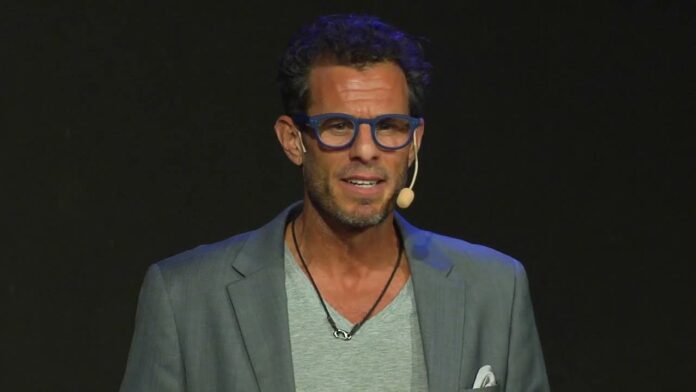Endangered species face numerous threats that require collective efforts to address. This article outlines practical steps you can take to make a difference. By educating yourself and others, supporting conservation organizations, adopting sustainable practices, and protecting natural habitats, you can contribute to the survival of these vulnerable species. Advocating for stronger wildlife protection laws, reducing pesticide and herbicide use, promoting sustainable tourism, supporting ethical consumer choices, and participating in citizen science projects are also crucial actions. Together, we can create a safer and more sustainable world for endangered species and ensure their survival for future generations.
xotools.xyz invites you to delve into this topic thoroughly.
1. Educate Yourself and Others
Understanding the plight of endangered species is the first step towards making a meaningful impact. Start by educating yourself about the species at risk in your region and globally. Learn about the factors contributing to their endangerment, such as habitat loss, climate change, pollution, and poaching. Reliable sources of information include wildlife conservation websites, documentaries, scientific journals, and books by experts in the field.
Once you are well-informed, share your knowledge with others. Raise awareness through social media, community events, or by giving talks at local schools and organizations. Encourage friends, family, and colleagues to get involved and make conscious decisions that benefit wildlife.
Education fosters a culture of empathy and responsibility towards endangered species. By spreading awareness, you can inspire others to take action, creating a ripple effect that extends far beyond your immediate circle. Engaged and informed communities are more likely to support conservation efforts, advocate for policy changes, and contribute to a sustainable future for endangered species. Remember, knowledge is a powerful tool in the fight to protect our planet’s biodiversity.
2. Support Conservation Organizations
Supporting conservation organizations is a vital step in protecting endangered species. These organizations work tirelessly to preserve habitats, conduct research, and implement conservation programs. You can contribute by donating funds, which directly support their initiatives. Even small donations can make a significant difference, helping to fund fieldwork, rescue operations, and advocacy efforts.
Volunteering your time is another impactful way to support conservation organizations. Many groups offer opportunities for volunteers to participate in habitat restoration, species monitoring, and community outreach programs. This hands-on involvement not only aids conservation efforts but also provides valuable learning experiences and a deeper connection to the cause.
Additionally, consider adopting an endangered animal through a conservation organization. These symbolic adoptions provide critical funding for the care and protection of these species. Regularly engage with the organizations you support by following their updates, participating in their events, and spreading the word about their work.
By backing these organizations financially and through volunteer efforts, you amplify their ability to make a difference. Your support enables them to continue their essential work in safeguarding endangered species and their habitats.
3. Adopt Sustainable Practices
Adopting sustainable practices in your daily life is crucial for the protection of endangered species. Start by reducing your carbon footprint through simple actions like conserving energy, using public transportation, and supporting renewable energy sources. Minimizing your waste by recycling, composting, and reducing single-use plastics also contributes to a healthier environment.
Sustainable food choices play a significant role in conservation. Opt for locally sourced, organic produce to reduce the impact of agriculture on wildlife habitats. Avoid products that contribute to deforestation, such as those containing palm oil, unless they are certified sustainable. Supporting sustainable seafood by choosing species that are not overfished and harvested using environmentally friendly methods is another effective step.
Water conservation is also vital. Reducing water usage helps maintain natural habitats and ensures that ecosystems remain balanced. Fix leaks, install water-saving devices, and use water responsibly in your home and garden.
By integrating these sustainable practices into your lifestyle, you help create a more resilient environment for endangered species. Every small action contributes to a larger impact, fostering a sustainable future where both humans and wildlife can thrive.
4. Protect Natural Habitats
Protecting natural habitats is essential for the survival of endangered species. Natural habitats provide the necessary resources such as food, shelter, and breeding grounds for wildlife. One effective way to protect these areas is by supporting and advocating for the creation and maintenance of protected areas, such as national parks, wildlife reserves, and marine sanctuaries. These designated areas offer safe havens for species to thrive without the threat of human interference.
Participating in local habitat restoration projects is another impactful way to contribute. These projects often involve activities like planting native trees, removing invasive species, and restoring wetlands. Such efforts help to maintain and restore the natural balance of ecosystems, providing a healthier environment for wildlife.
Reducing urban sprawl and limiting development in critical habitats can significantly benefit endangered species. Support policies and initiatives that promote sustainable land use and urban planning. Encourage your community to value and preserve green spaces and natural landscapes.
Additionally, being mindful of your outdoor activities can help protect natural habitats. Stick to designated trails, avoid disturbing wildlife, and follow “Leave No Trace” principles when hiking or camping. By protecting natural habitats, we ensure that endangered species have the space and resources they need to survive and recover.
5. Advocate for Stronger Wildlife Protection Laws
Advocating for stronger wildlife protection laws is a crucial step in safeguarding endangered species. Legal frameworks provide the foundation for conservation efforts, regulating activities that threaten wildlife and their habitats. To make a difference, start by educating yourself about existing laws and regulations related to wildlife protection, both locally and globally.
Get involved in the legislative process by supporting policies and initiatives that enhance wildlife protection. Contact your local representatives to express your concerns and urge them to prioritize conservation measures. Participate in public comment periods for proposed regulations, attend town hall meetings, and join advocacy groups that focus on environmental legislation.
Signing petitions and supporting campaigns that call for stronger wildlife protection laws can amplify your voice. Social media is a powerful tool for raising awareness and rallying support for policy changes. Share information, engage in discussions, and encourage others to join the cause.
Your advocacy efforts can lead to significant changes, such as increased funding for conservation programs, stricter penalties for illegal activities like poaching, and the establishment of new protected areas. By championing stronger wildlife protection laws, you help create a legal environment that ensures the long-term survival of endangered species.
6. Reduce Pesticide and Herbicide Use
Reducing pesticide and herbicide use is vital for protecting endangered species. These chemicals can harm non-target organisms, including beneficial insects, birds, and aquatic life, disrupting ecosystems and contributing to biodiversity loss. Start by opting for organic or natural alternatives in your garden and lawn care. Integrated Pest Management (IPM) techniques, such as using biological controls, companion planting, and manual removal of pests, can effectively reduce reliance on chemical treatments.
Support agricultural practices that minimize chemical use by purchasing organic produce and products from farms that employ sustainable methods. Educate yourself and others about the dangers of pesticides and herbicides, and advocate for policies that promote safer alternatives.
Proper disposal of hazardous chemicals is also crucial. Never pour pesticides or herbicides down the drain or into the environment. Follow local guidelines for disposal and participate in community hazardous waste collection programs.
By reducing your use of these harmful chemicals, you help preserve the health of ecosystems and protect the diverse species that depend on them. Every small change contributes to a healthier, more sustainable environment for endangered species.
7. Promote Sustainable Tourism
Promoting sustainable tourism is essential for protecting endangered species and their habitats. Tourism can have significant impacts on wildlife, but responsible practices can mitigate these effects. Choose eco-friendly tour operators that prioritize conservation, support local communities, and minimize environmental footprints. Look for certifications from reputable organizations to ensure sustainable practices.
Respect wildlife and their habitats by following guidelines for responsible behavior, such as maintaining a safe distance, not disturbing animals, and avoiding feeding wildlife. Support conservation efforts by visiting national parks, wildlife reserves, and eco-lodges that reinvest tourism revenue into local conservation projects.
Reduce your travel impact by choosing sustainable transportation options, such as public transit, biking, or walking. When flying is necessary, consider carbon offset programs to compensate for emissions.
Educate yourself about the cultural and environmental significance of the places you visit and share this knowledge with others. By promoting sustainable tourism, you contribute to the preservation of natural habitats, support local economies, and help ensure that endangered species thrive in their native environments. Responsible travel can be a powerful tool for conservation.
8. Support Ethical Consumer Choices
Supporting ethical consumer choices plays a significant role in protecting endangered species and their habitats. Begin by making informed decisions about the products you buy. Opt for goods that are certified as sustainable, such as those carrying eco-friendly labels or certifications like Fair Trade and Rainforest Alliance. These certifications ensure that products are sourced responsibly, with minimal impact on wildlife and their environments.
Avoid purchasing products linked to deforestation or habitat destruction, such as those containing unsustainable palm oil or timber from illegal logging. Choose alternatives that are certified to be sustainably harvested or produced. Additionally, support companies that are committed to reducing their environmental footprint and promoting conservation.
When it comes to fashion and cosmetics, select brands that do not test on animals and use ethically sourced materials. By supporting these brands, you help reduce demand for harmful practices and encourage companies to adopt more sustainable practices.
Educate others about the importance of ethical consumerism and how their purchasing choices can impact wildlife conservation. Share information on sustainable products and practices through social media or community groups. Each purchase can contribute to a larger movement toward environmental responsibility and the protection of endangered species.
9. Participate in Citizen Science Projects
Participating in citizen science projects is a powerful way to contribute to the conservation of endangered species. These projects involve ordinary people in scientific research, providing valuable data that can aid in wildlife monitoring and habitat protection. Start by finding projects that align with your interests and location, such as bird watching surveys, butterfly counts, or water quality assessments.
Engage with projects through platforms like iNaturalist, eBird, or local conservation organizations. These platforms often provide tools and resources for recording observations and submitting data. Your contributions can help scientists track species populations, detect changes in ecosystems, and identify areas in need of protection.
Volunteer for fieldwork or data collection activities organized by conservation groups. These hands-on experiences can deepen your understanding of conservation issues and enhance your impact.
By participating in citizen science, you not only support important research but also raise awareness about the needs of endangered species. Your involvement helps to build a community of informed and engaged individuals dedicated to preserving wildlife and their habitats.
Taking action to protect endangered species involves a multifaceted approach. By educating yourself and others, supporting conservation efforts, adopting sustainable practices, and advocating for stronger laws, you contribute to a brighter future for wildlife. Each effort, no matter how small, plays a crucial role in preserving our planet’s biodiversity for generations to come.
xotools.xyz
xotools.xyz








